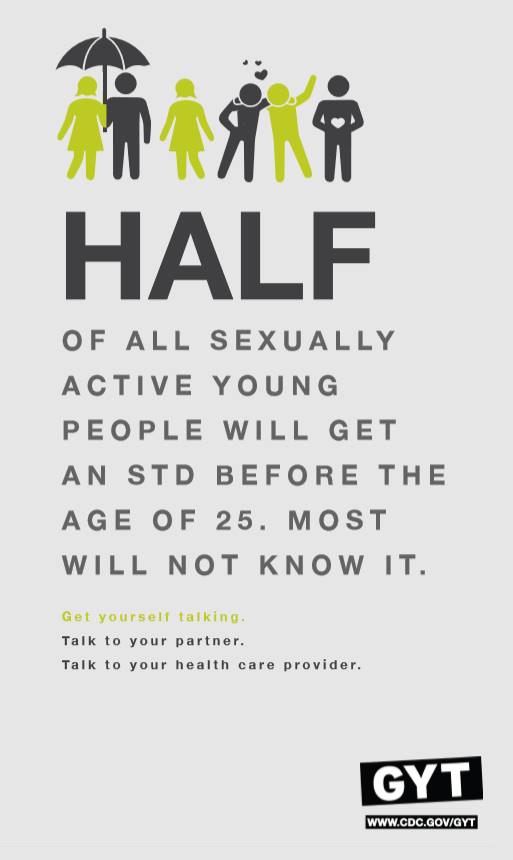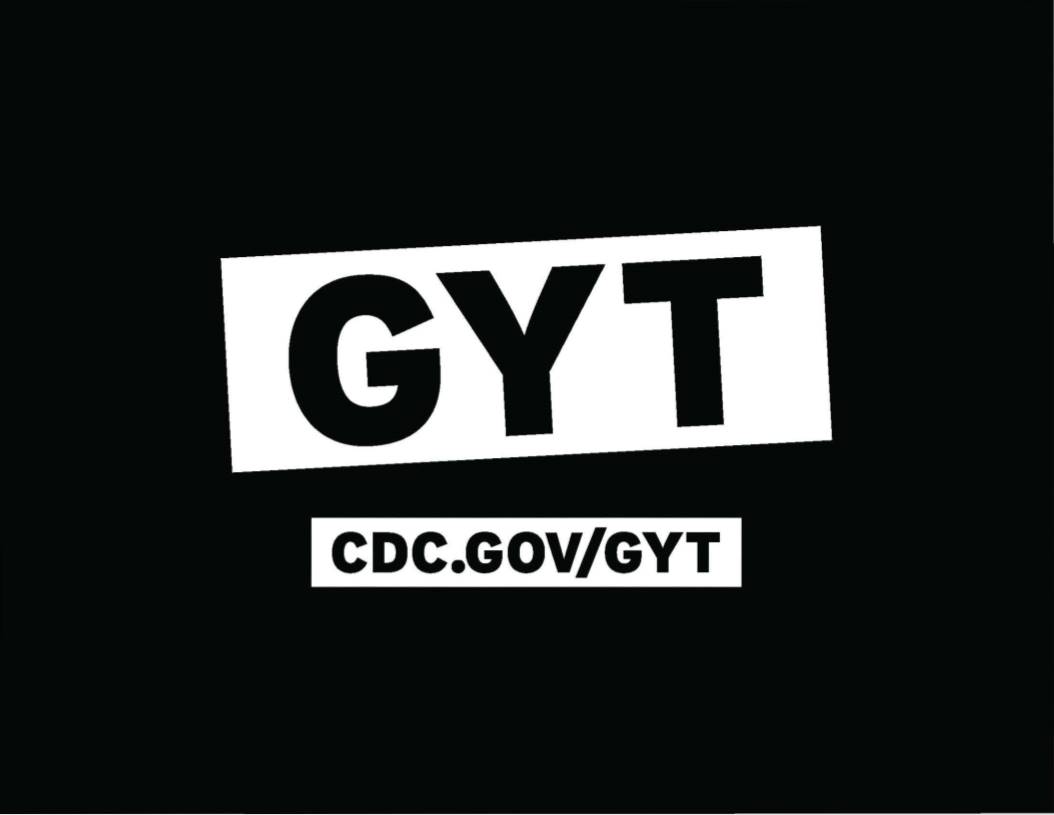STI Testing
Get Yourself Tested (GYT)
Get Yourself Tested is a campaign developed by the Center for Disease Control to encourage young people to get tested and treated, as needed, for STIs and HIV. According to the CDC, sexually active young adults acquire half of all new STIs in the U.S. each year. Unfortunately, many don't know they are infected.
Where to Get Tested
We offer free STI testing on the Valley Campus monthly and on the City Campus once a semester.
Questions about STI Testing on campus? Please call or text Health Promotion at 616-331-9348.
Valley Campus
Walk-in testing. No appointment necessary. Free and confidential. Urine sample or vaginal swab for chlamydia and gonorrhea. No HIV testing.
Provided by Ottawa County Dept of Public Health clinical staff.
2nd Wednesday of each month from 3 - 7 p.m. September to April
Holton-Hooker Living Center 209a (exception Feb 11 - KC 2227/2228)
2026 Dates:
- Feb 5 - HIV Only - Rapid Testing 6-8 p.m. Mary Idema Pew Library
- February 11 Note: HIV Testing will also be available in partnership with the GR Red Project. Testing location will be in KC 2227/2228
- March 18
- April 8
City Campus
Red Project will offer HIV Testing on the Pew Campus
DeVos C
Feb 10, 12-3pm
HIV Testing is FREE
Results within 30 mins
Why get Tested?
Know the Facts #GYT
Do you know…?
- STIs impact young people the hardest. In the U.S., half of all new STIs are in people under 25 years old.
- If you are sexually active, you can lower your risk of getting an STI by using a latex condom the right way from start to finish every time you have sex.
- Almost all STIs that can be spread via condomless vaginal sex can also be spread through oral and anal sex without a condom.
- You can’t tell if someone has an STI just by looking at them. Many STIs don’t cause any symptoms, so the only way to know for sure is to get tested.
- Even if you use birth control, you should still think about STI prevention. Birth control methods like the pill, patch, ring, and IUD are very effective at preventing pregnancy, but they do not protect against STIs and HIV.
- The most reliable way to avoid STIs is to not have vaginal, anal, or oral sex.
You should also know that all STIs, even HIV, are treatable, and most are curable. The sooner you get tested, the sooner you can take action to protect your health and the health of your partner(s).
Some STIs can lead to serious health problems if they’re not treated. For example, an untreated STI, like chlamydia, can make it difficult or impossible for a woman to get pregnant. And having herpes or gonorrhea can increase your chances of getting HIV.
- STI tests are quick, simple, and usually painless. For example, rapid HIV tests can provide results from just a swab inside the mouth in only 20 minutes.
- Not all medical checkups include STI testing. Unless you ask to be tested, you can’t assume you have been. Ask your medical provider which STIs you should be tested for.
- Talk to your partner about when you were last tested and suggest getting tested together. And if you have an STI, tell your partner. These conversations may seem hard to have, but open communication with your partner is essential to staying healthy and stopping the spread of STIs. These conversations may also bring you closer together. Here are some tips to help you start the conversation.
- You can find confidential testing near you that is free or low cost by going to the Get Yourself Tested website.

STI Testing 101
Which STI test should you consider?
If you are sexually active, getting tested for STIs is one of the most important things you can do to protect your health!
- Have an open and honest conversation with your doctor about your sexual history and STI testing. This will help them understand what STI tests you may need.
Studies have shown that many people don’t talk to their healthcare providers about issues of sex and sexuality during their annual health visits, sometimes because they are afraid their parents might find out.
- If you don’t feel comfortable talking with your regular healthcare provider about STIs, visit one of the many clinics that provide confidential testing that is free or low cost.
- For ways to prepare for your doctor’s visit, check out the Take Charge of Your Sexual Health guide.
How does STI testing work?
STI testing can be easy, quick and often painless. STI testing may consist of a urine test, cheek swab, blood test, physical exam or swab of sores.
Most physical exams at your doctor's office do not routinely include STI testing so you should be sure to ask when you have a physical exam.
Don't want to be tested at your doctor's office? Check out the locations above for free or low-cost services.
How do I know if I am at risk?
Your sexual health is at risk if you answer “yes” to any of the following questions:
- Have you had unprotected vaginal, anal, or oral sex (sex without a condom)?
- Do you have multiple partners?
- Do you have an STI, including HIV?
- Have you shared injection drug equipment, including needles or syringes?
- Do you have a partner who answers “yes” to any of these questions or whose health status you don’t know?

